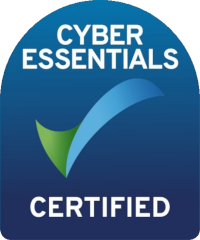BLOG
Digital Literacy in UK Classrooms: EdTech Insights 2025
As AI and online tools transform education, teaching digital literacy is no longer optional — it's essential for students and teachers alike.
- Technology
- 03-07-2024
Digital Literacy for the Modern Classroom: A Core Skill, Not a Bonus
In today's rapidly evolving educational landscape, digital literacy has transitioned from a supplementary skill to a fundamental component of effective teaching and learning. With the integration of artificial intelligence (AI), online learning platforms, and collaborative tools, students and educators alike must navigate a complex digital environment.
Understanding Digital Literacy in 2025
Digital literacy encompasses a broad range of competencies, including:
-
Critical Evaluation: Assessing the credibility of online information and identifying misinformation.
-
AI Proficiency: Understanding and responsibly using AI tools such as ChatGPT and Grammarly.
-
Digital Communication: Engaging effectively through various digital platforms.
-
Content Creation: Producing digital content while respecting intellectual property rights.
-
Online Safety: Protecting personal information and promoting digital well-being.
-
Digital Footprint Awareness: Recognizing the long-term implications of one's online activities.National Literacy Trust+2UK Safer Internet Centre+2Aldinhe Journal+2
The Importance of Digital Literacy
Recent studies highlight the growing significance of digital literacy:
-
92% of UK undergraduates reported using AI tools for academic purposes in 2025, a significant increase from 66% in 2024.
-
77.1% of 13- to 18-year-olds have used generative AI tools, up from 37.1% the previous year.
-
24% of teachers identified a lack of confidence in their digital skills as a barrier to integrating technology into their teaching practices. The Guardian+2Financial Times+2Times Higher Education (THE)+2National Literacy Trustdigitalpovertyalliance.org
These statistics underscore the necessity for comprehensive digital literacy education to ensure students and educators can effectively and ethically engage with digital technologies.
Benefits of Digital Literacy
Enhancing digital literacy offers numerous advantages:
-
Empowered Learning: Students can access diverse resources and tools to support their education.
-
Enhanced Teaching: Educators can leverage technology to create dynamic and interactive learning experiences.
-
Informed Citizenship: Individuals are better equipped to participate responsibly in digital communities.
-
Workforce Readiness: Students develop skills essential for success in a digitally-driven job market.Parliament Publications
Strategies for Implementing Digital Literacy
To foster digital literacy, educational institutions can:
-
Integrate Digital Literacy Across Curricula: Embed digital skills into various subjects to provide context and relevance.
-
Provide Professional Development: Offer training for educators to build confidence and competence in using digital tools.
-
Develop Clear Policies: Establish guidelines for the ethical use of technology and AI in educational settings.
-
Engage Students in Dialogue: Encourage discussions about digital experiences to promote critical thinking and awareness.
Digital literacy is an essential skill in the modern classroom, enabling students and educators to navigate the digital world effectively and responsibly. By prioritising digital literacy education, schools can prepare learners for the challenges and opportunities of an increasingly digital society.

Lucy Greenwell
Product Marketing ManagerLucy is passionate about using technology and communication to improve organisations and help meet the needs of stakeholders and users.
Contact us
If you'd like to know more about how we can help your organisation, please get in touch.
Subscribe to our newsletter
About Us
Innovative digital solutions for education - supporting policy, leadership, delivery, and learning

Useful Links
Contact Us
Trent Lodge
Stroud Rd
Cirencester
GL7 6JN
0117 4573283